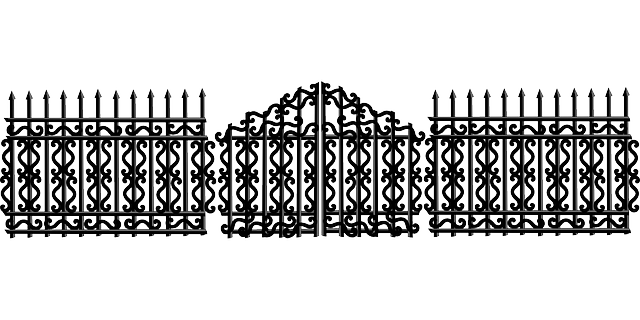In New Bedford, MA, privacy fences serve not just as barriers but as statements of personal space and security. This guide delves into the world of fence installation, offering insights on choosing the right type for your property. From wooden classics to modern vinyl options, understanding the benefits aligns with selecting materials that withstand local climates. Safe and effective installation practices are paramount; this article provides expert tips for hiring professionals who can ensure structural integrity while enhancing your outdoor sanctuary’s privacy.
- Understanding Privacy Fences: Benefits and Types
- Planning Your New Bedford Fence Installation
- Choosing the Right Materials and Design
- Hiring Professionals: Installation Tips and Safety Measures
Understanding Privacy Fences: Benefits and Types
Privacy fences serve as more than just barriers; they are an investment in your home’s security and peace of mind. They offer a sense of seclusion, protecting your personal space from prying eyes while allowing natural light and air to circulate. There are several types available, each catering to different needs and aesthetics: wood, vinyl, chain link, and iron being the most common.
Wooden fences exude warmth and charm, enhancing outdoor living spaces. Vinyl options require less maintenance and come in various styles and colors. Chain link fences offer both security and visibility, while wrought iron fences provide an elegant, timeless look. Choosing the right type depends on your preferences, budget, and the level of privacy desired.
Planning Your New Bedford Fence Installation
When planning your new fence installation in New Bedford, MA, start by assessing the area and determining your specific needs. Consider factors like the size of your property, existing structures, and the level of privacy desired. Measure the perimeter carefully to ensure accurate material estimation and budget planning. Choose a design that aligns with your aesthetic preferences and functional requirements, whether it’s a traditional wood fence or a modern metal alternative.
Next, familiarize yourself with local regulations and building codes related to fence installations. Obtain necessary permits and ensure the chosen location complies with zoning rules. Consult professionals for expert advice on materials, styles, and potential challenges unique to New Bedford’s environment. This proactive planning will set a solid foundation for a successful fence installation project that meets both your privacy needs and local guidelines.
Choosing the Right Materials and Design
When it comes to installing a privacy fence in New Bedford, MA, selecting the appropriate materials is a top priority. The right choice depends on your climate, personal style, and budget. Wood offers a classic look but requires regular maintenance, while vinyl is low-maintenance and highly durable. Concrete or brick provide exceptional strength and longevity but may be costlier. Consider the local weather patterns; for instance, areas with high humidity might need to opt for rot-resistant wood treatments or alternative materials like composite fencing.
Design is another critical aspect. Fences can serve functional purposes, offering privacy and security, or act as aesthetic elements enhancing your outdoor space. Some popular designs include traditional picket fences, modern horizontal slats, or custom patterns incorporating gates and posts. The design should complement your home’s architecture and the surrounding landscape while ensuring it meets your privacy needs.
Hiring Professionals: Installation Tips and Safety Measures
When considering a privacy fence installation in New Bedford, MA, hiring professionals is often the best course of action. Expert fence installers bring a wealth of knowledge and experience to the project. They understand local regulations, possess the necessary tools, and know how to ensure your fence not only looks great but also stands the test of time. Safety is paramount during installation. Professionals prioritize worker safety by utilizing proper equipment, following manufacturer guidelines, and adhering to safety protocols specific to each project.
Their expertise extends to choosing the right materials, managing permits (if required), and addressing potential challenges unique to your property. They can also help you select designs that fit both your aesthetic preferences and functional needs, ensuring a secure and private outdoor space.
